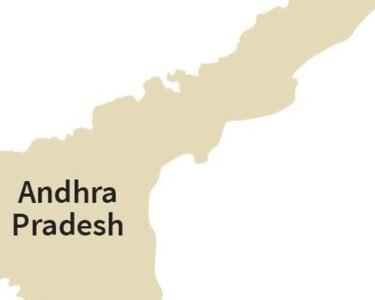Prime Minister Narendra Modi has returned to India after completing a significant three-day visit to South Africa, where he participated in high-level diplomatic meetings, strengthened bilateral ties, and engaged with global leaders. The visit, which focused on enhancing cooperation in trade, technology, defence, and cultural exchange, is being viewed as an important step in India’s expanding engagement with the African continent. The outcomes of the trip are expected to contribute substantially to India’s international standing and its long-term vision of South-South cooperation.
Strengthening India–South Africa Bilateral Relations
The visit underscored the deep and historical bonds shared by India and South Africa—two nations linked by strong cultural, political, and economic ties. PM Modi’s meetings with South African President Cyril Ramaphosa focused on expanding cooperation across various sectors. Both leaders emphasized the importance of shared democratic values, mutual respect, and collaboration on global issues including climate resilience, sustainable development, and international peacekeeping.
India and South Africa already enjoy a strong trade partnership. During the visit, the two leaders discussed ways to boost bilateral trade beyond its current levels and expand investment in sectors such as pharmaceuticals, renewable energy, digital technologies, mining, and infrastructure.
Key Agreements and Announcements
Several important MoUs and agreements were announced during the trip, aimed at deepening cooperation between the two countries. These include:
1. Trade and Investment Cooperation
Both nations agreed to push for an increase in bilateral trade volumes in the coming years. Industries such as mining, automotive manufacturing, and information technology were identified as high-growth sectors.
2. Defence Partnership Expansion
India and South Africa explored opportunities to expand defence manufacturing partnerships, joint military exercises, and strategic technology exchanges. Discussions also touched upon enhancing India’s footprint in Africa’s maritime security architecture.
3. Renewable Energy Collaboration
South Africa’s ambitious renewable energy goals align with India’s global leadership in solar power. The two countries signed an MoU to collaborate on solar technology research, green hydrogen development, and cleaner fuel solutions.
4. Education and Skill Development Initiatives
New educational exchange programs were unveiled, supporting student mobility, research collaborations, and vocational training initiatives aimed at empowering youth in both countries.
Participation in Key Multilateral Forums
PM Modi also took part in several multilateral meetings held on the sidelines of his South Africa trip. These forums were vital platforms for discussing global economic trends, geopolitical challenges, and cooperation in emerging technologies.
India used the platform to highlight the need for equitable global governance structures, India–Africa partnership potential, and the importance of resilience in supply chains. PM Modi reiterated India’s commitment to supporting developing nations in emerging global challenges such as climate change, digital inequity, and public health crises.
Focus on South-South Cooperation
A major theme of PM Modi’s visit was strengthening South-South cooperation. India and South Africa, both influential voices in the Global South, discussed expanding collaboration through platforms like IBSA (India-Brazil-South Africa), BRICS, and the United Nations.
PM Modi emphasized the need for developing nations to work together to ensure fair representation in global decision-making bodies. He also advocated for collective efforts to address food security, energy challenges, and economic inequality affecting the developing world.
Boost to Cultural and People-to-People Ties
Cultural exchange was another important highlight of the visit. PM Modi met members of the Indian diaspora in South Africa, acknowledging their contribution to strengthening the bond between the two countries. The Indian community in South Africa, with its rich history dating back over a century, continues to play a vital role in trade, culture, and diplomacy.
Various cultural programs, traditional art showcases, and interactive sessions were organized to highlight the shared heritage of the two nations. Plans were also discussed for expanding tourism, cultural festivals, and heritage partnerships.
Enhancing Technology & Digital Cooperation
Both countries agreed to expand cooperation in the digital sector, including:
- Digital public infrastructure
- Cybersecurity frameworks
- Fintech solutions
- Artificial intelligence research
- Technology-based governance models
India shared insights into its successful digital transformation initiatives such as UPI, Aadhaar, and digital public goods, suggesting potential areas for collaborative deployment in South Africa.
Implications for India’s Africa Policy
PM Modi’s visit is expected to significantly influence India’s broader Africa engagement strategy. With Africa’s growing geopolitical and economic importance, India aims to strengthen relationships across the continent through:
- Enhanced diplomatic presence
- Targeted development partnerships
- Greater private-sector involvement
- Capacity-building programs
South Africa, being one of Africa’s largest economies and a strategic partner, is central to India’s Africa outreach. The visit is likely to set the tone for future collaborations, especially in trade, healthcare, climate action, and technology.
Global Reactions and Foreign Policy Impact
International observers noted India’s growing assertiveness in global diplomacy. PM Modi’s engagements in South Africa reflect India’s broader aim to position itself as a bridge between developed and developing nations. The visit also comes at a time when global geopolitical dynamics are shifting, giving India a key role in shaping international economic and security dialogues.
Conclusion
PM Modi’s three-day visit to South Africa has strengthened bilateral relations, advanced cooperation across multiple sectors, and reinforced India’s commitment to the Global South. The outcomes of the visit are expected to enhance strategic ties, boost trade and investment, and create new opportunities for collaboration in renewable energy, digital governance, defence, and cultural partnerships. As India continues to expand its global presence, the visit marks another important step in shaping a modern partnership with Africa—one built on shared values, mutual growth, and a vision for a more equitable world.
Do Follow Us Instagram







